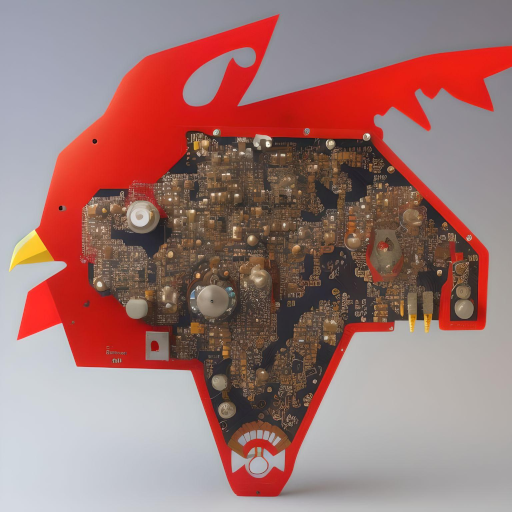Found the error Not allowed to load local resource: file:///etc/passwd while looking at infosec.pub’s communities page. There’s a community called “ignore me” that adds a few image tags trying to steal your passwd file.
You have to be extremely poorly configured for this to work, but the red flags you see should keep you on your toes for the red flags you don’t.


Are you sure? What do you get when you run
$ cat /etc/passwdin terminal? Just paste the results here 😇Edit: to anyone reading this on the future, don’t actually do this, it was a joke
yup pretty sure
$ cat /etc/passwd fox:hunter2:1000:1000::/home/fox:/usr/bin/zsh😉
Weird, all I see is *******
Since you told me not to. There isn’t a risk on most linux systems; passwords were moved to /etc/shadow a long time ago. It only leaks the names of your users and largely useless info for most attackers:
root:x:0:0:root:/root:/bin/bash daemon:x:1:1:daemon:/usr/sbin:/usr/sbin/nologin bin:x:2:2:bin:/bin:/usr/sbin/nologin sys:x:3:3:sys:/dev:/usr/sbin/nologin sync:x:4:65534:sync:/bin:/bin/sync games:x:5:60:games:/usr/games:/usr/sbin/nologin man:x:6:12:man:/var/cache/man:/usr/sbin/nologin lp:x:7:7:lp:/var/spool/lpd:/usr/sbin/nologin mail:x:8:8:mail:/var/mail:/usr/sbin/nologin news:x:9:9:news:/var/spool/news:/usr/sbin/nologin uucp:x:10:10:uucp:/var/spool/uucp:/usr/sbin/nologin proxy:x:13:13:proxy:/bin:/usr/sbin/nologin www-data:x:33:33:www-data:/var/www:/usr/sbin/nologin backup:x:34:34:backup:/var/backups:/usr/sbin/nologin list:x:38:38:Mailing List Manager:/var/list:/usr/sbin/nologin irc:x:39:39:ircd:/run/ircd:/usr/sbin/nologin gnats:x:41:41:Gnats Bug-Reporting System (admin):/var/lib/gnats:/usr/sbin/nologin nobody:x:65534:65534:nobody:/nonexistent:/usr/sbin/nologin _apt:x:100:65534::/nonexistent:/usr/sbin/nologin systemd-network:x:101:102:systemd Network Management,,,:/run/systemd:/usr/sbin/nologin systemd-resolve:x:102:103:systemd Resolver,,,:/run/systemd:/usr/sbin/nologin messagebus:x:999:999:System Message Bus:/:/usr/sbin/nologin systemd-timesync:x:998:998:systemd Time Synchronization:/:/usr/sbin/nologin systemd-coredump:x:997:997:systemd Core Dumper:/:/usr/sbin/nologin delial:x:1000:1000:,,,:/home/delial:/bin/bash sshd:x:103:65534::/run/sshd:/usr/sbin/nologin xrdp:x:104:110::/run/xrdp:/usr/sbin/nologin dictd:x:105:111:Dictd Server,,,:/var/lib/dictd:/usr/sbin/nologin nm-openvpn:x:106:112:NetworkManager OpenVPN,,,:/var/lib/openvpn/chroot:/usr/sbin/nologin sssd:x:107:113:SSSD system user,,,:/var/lib/sss:/usr/sbin/nologinWell it’s not completely useless. It offers some insights into the system. Which service accounts exists, what usernames are used.
If an attacker finds a valid username they can then start bruteforcing the password.
From your account list we can see you have sshd and xrdp. Do they both provide the same kind of bruteforce protection? Are there any recent exploits for either?
That’s why I said largely useless. An attacker can narrow down the attack surface by ignoring anything that can’t login, but that just leaves them with root and delial, and they already knew or could’ve guessed both of those pieces of information (in this context anyway).
And as you noted when looking at the service accounts, they might be able to login or crack their way in via xrdp or sshd. So, unless you’re port-forwarding those protocols from the internet, how useful is that really? I would say largely useless. Assuming they port-scanned your public IP, they still need either an insecure config or an unpatched, remotely exploitable bug.
That being said, you’re totally right. The average Linux user isn’t “administering” their system, so they probably aren’t following their distribution’s security mailing list, installing security patches as they’re released, and actually RTFM. It’s best for the average user to play it unbelievably safe.
In this case, the machine isn’t actually running xrdp, and sshd doesn’t accept passwords or root logins. (Although, I need to setup knockd to protect that non-standard sshd port a bit more.) All passwords used on the system are random and longer than 32 characters. My router doesn’t port-forward to this machine, either.
This has been an exercise of Cunningham’s Law for the benefit of those reading.